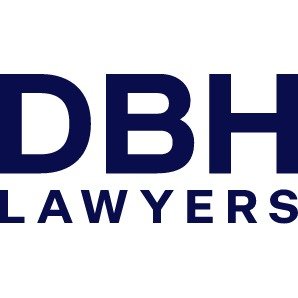Best Birth Injury Lawyers in Salisbury
Share your needs with us, get contacted by law firms.
Free. Takes 2 min.
List of the best lawyers in Salisbury, Australia
About Birth Injury Law in Salisbury, Australia
In Salisbury, Australia, birth injury law focuses on the legal issues that arise when a newborn suffers harm during or shortly after birth. Such injuries can result from medical negligence, improper medical care, or unforeseen complications during delivery. Birth injury law is a specialized field within personal injury law that addresses the complex medical and legal issues involved in these cases. This field aims to ensure that affected families receive proper compensation and justice when medical professionals fail to meet the accepted standard of care.
Why You May Need a Lawyer
Several scenarios might necessitate legal help regarding a birth injury. These include cases where a newborn has suffered a debilitating or life-altering injury due to possible negligence by medical professionals. Common situations include improper use of medical instruments like forceps, failure to perform necessary C-sections, incorrect administration of medications, or failure to monitor the baby's vital signs properly. A lawyer can be pivotal in assessing the situation, building a strong case, and navigating the legal system to advocate for the rights of the affected child and family.
Local Laws Overview
Salisbury, like the rest of South Australia, operates under both state and national legislations addressing medical negligence and personal injury. The Civil Liability Act 1936 (SA) is particularly relevant, setting out the legal parameters for establishing negligence and assessing damages. Key elements include proving that the medical provider owed a duty of care, that this duty was breached, and that the breach directly caused the injury in question. Potential cases often involve complex interactions between medical practice standards and legal accountability.
Frequently Asked Questions
What is a birth injury?
A birth injury refers to any harm or injury inflicted on a baby during the process of birth due to complications or negligence.
What are common types of birth injuries?
Common birth injuries include cerebral palsy, brachial plexus injury, fractures, and brain injuries, often resulting from oxygen deprivation or physical trauma.
How do I know if a birth injury was due to medical negligence?
Determining negligence involves reviewing medical records, consulting medical experts, and legal analysis to assess whether standard care protocols were violated.
What compensation might be available for a birth injury case?
Compensation can cover medical expenses, long-term care, loss of future earnings, and pain and suffering, depending on the severity of the injury and its impact on the child's life.
Is there a time limit for filing a birth injury claim?
Yes, South Australia imposes statutory time limits for personal injury claims, and it's crucial to act quickly as timelines can vary based on case specifics.
Can I handle a birth injury claim on my own?
Given the technical and complex nature of birth injury claims, legal representation is highly advisable to effectively navigate the process and maximize chances of success.
What should I bring to a consultation with a birth injury lawyer?
Bring all relevant medical records, notes, and documents related to the birth and ongoing care, along with any correspondence with medical providers.
How much does it cost to hire a birth injury lawyer?
Many lawyers work on a contingency fee basis, meaning they only get paid if you win the case, although specific terms can vary, so it’s essential to discuss fees upfront.
What determines the success of a birth injury lawsuit?
Success is heavily reliant on the ability to prove negligence, demonstrate the injury's impact, and secure credible expert opinions to support claims.
Can prior medical conditions affect my case?
Pre-existing conditions can play a role in birth injury cases, so it is important to document any related concerns and discuss them with your lawyer.
Additional Resources
For further assistance, consider contacting the Australian Birth Trauma Association and the Medical Negligence Claim Lawyers. Consulting with local medical boards and governmental health departments can provide valuable insights and support. Legal aid services in South Australia may also offer guidance for individuals seeking advice or pursuing a claim.
Next Steps
If you or someone you know needs legal assistance regarding a birth injury, it’s crucial to consult with a specialized attorney as soon as possible. Begin by gathering all relevant documentation concerning the birth and ongoing medical care. Seek referrals from trusted medical professionals or start with consultations offered by law firms with expertise in medical negligence in South Australia. Carefully evaluate potential lawyers, considering their experience, success rates, and approach to handling such sensitive cases to ensure you receive informed and compassionate representation.
Lawzana helps you find the best lawyers and law firms in Salisbury through a curated and pre-screened list of qualified legal professionals. Our platform offers rankings and detailed profiles of attorneys and law firms, allowing you to compare based on practice areas, including Birth Injury, experience, and client feedback.
Each profile includes a description of the firm's areas of practice, client reviews, team members and partners, year of establishment, spoken languages, office locations, contact information, social media presence, and any published articles or resources. Most firms on our platform speak English and are experienced in both local and international legal matters.
Get a quote from top-rated law firms in Salisbury, Australia — quickly, securely, and without unnecessary hassle.
Disclaimer:
The information provided on this page is for general informational purposes only and does not constitute legal advice. While we strive to ensure the accuracy and relevance of the content, legal information may change over time, and interpretations of the law can vary. You should always consult with a qualified legal professional for advice specific to your situation.
We disclaim all liability for actions taken or not taken based on the content of this page. If you believe any information is incorrect or outdated, please contact us, and we will review and update it where appropriate.








